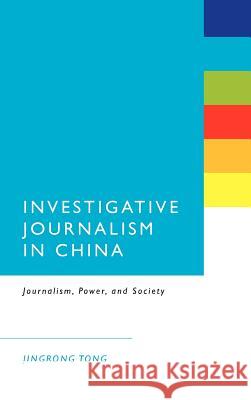Investigative Journalism in China: Journalism Power and Society » książka
Investigative Journalism in China: Journalism Power and Society
ISBN-13: 9781441101044 / Angielski / Twarda / 2011 / 280 str.
In the framework of democratic societies, investigative journalism is deemed as serving the public interest, helping maintain a healthy public sphere and helping to hold power into account. The ideals of a democratic society justify the idea and practice of investigative journalism. Alternately, modern China runs an authoritarian system of the one-party rule, so where does the idea of investigative journalism fit in? Why can investigative journalism appear in such an authoritarian society and with what characteristics?
Investigative Journalism in China examines the four aspects of Chinese investigative journalism (the Idea of investigative journalism and its comparison against Western contexts; the Development/Influence; Reporters and their work; and the Impacts on society), by using empirical data from Dr. Jingrong Tong's fieldwork at two newsrooms (the Southern Metropolitan Daily and the Dahe Daily) in 2006, 73 in-depth-interviews conducted from 2004-2008, and the analysis of internal and public documents and media cases in order to accurately survey the field and put it in context.











